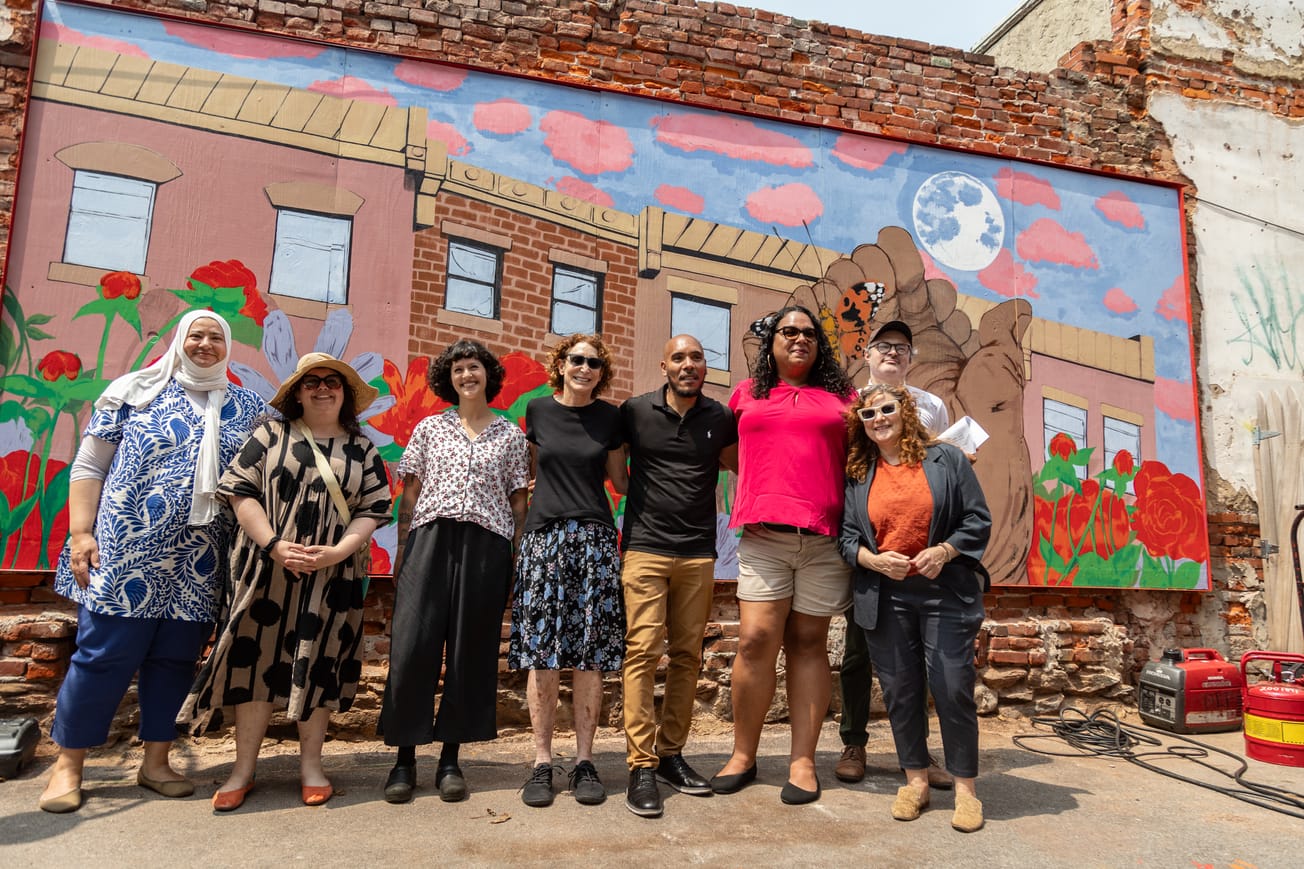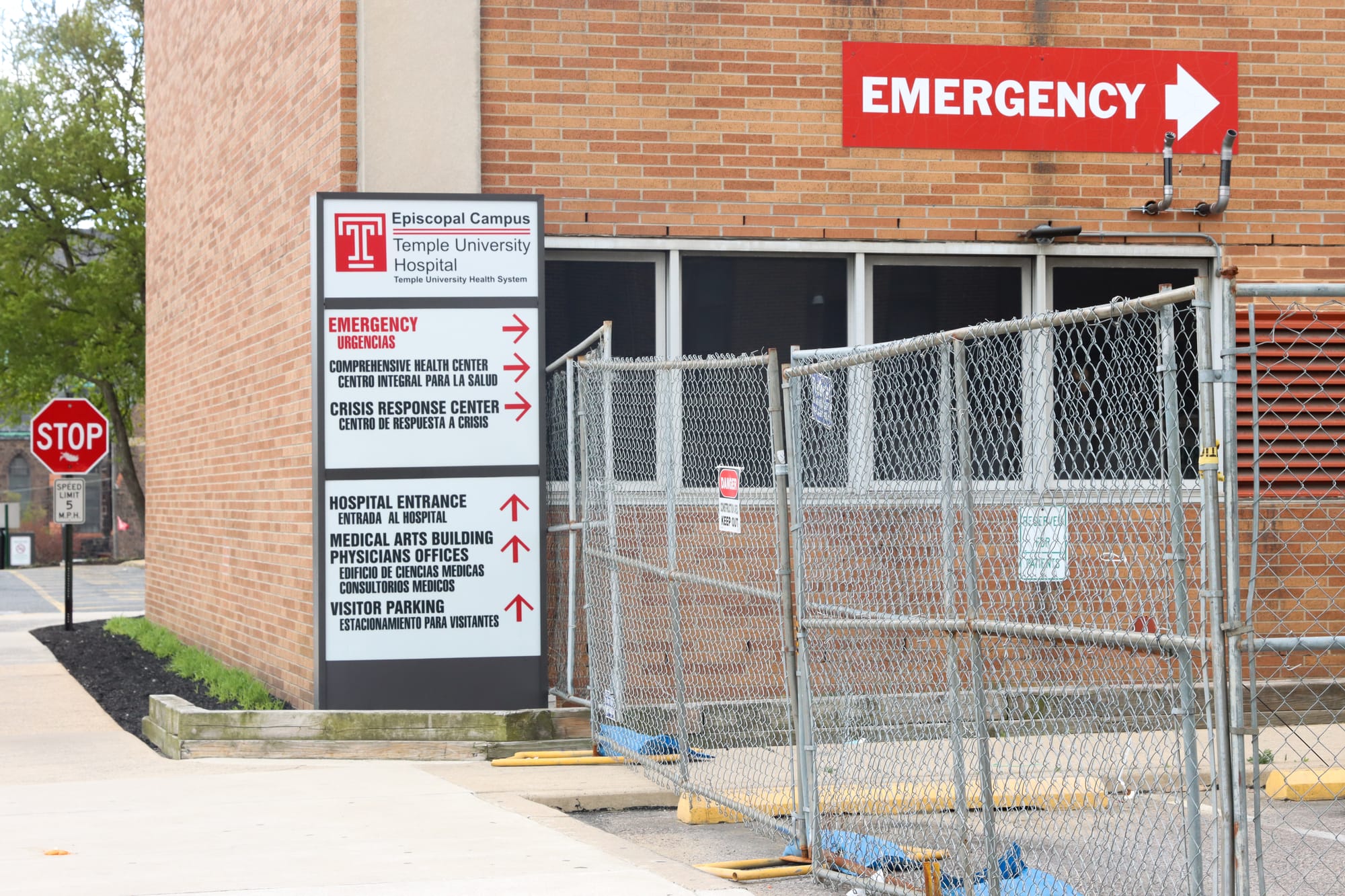
The national shortage of Sexual Assault Nurse Examiners, or SANE nurses, can make the process of receiving a rape kit exam long, stressful, and sometimes intolerable for survivors, advocates say.
In hopes of addressing that problem, Pennsylvania Senator Elder Vogel introduced a sexual assault exam access bill last fall. It received Governor Josh Shapiro’s signature in December. The law would create grants that would assist hospitals in hiring SANE nurses. Facilities would apply to the Pennsylvania Department of Health for the money.
But the law has not received any funding from the state.
“Right now, we got the bill signed, but we’re waiting on some appropriations money to try to implement the program,” said Vogel.
If funding is allocated, the state would also create a directory of hospitals with SANE nurses on site or on call.
“Let's make sure there's a map of where there's access; let's make sure people know where to get access and where that expertise exists,” said Sheridan Miyamoto, a nurse practitioner and nursing researcher at Penn State University who supports the new law. “That alone may encourage hospitals to want to be on the list.”
Sexual assault advocates statewide are hoping to see funding allocated for the law when Shapiro releases his final budget this June.
Vogel’s staff said in an email that they “left the funding amount open-ended” and can’t share an exact asking amount because they “can’t ensure that will be the number agreed upon in the final budget.”
Karin Wickwire, president-elect of the International Association of Forensic Nursing Board and Foundation and former president of the PA Chapter, said that even if funding is allocated, the state’s health department and hospitals will need to increase their coordination before the program rolls out.
“Who’s determining what’s enough SANE nurses?” said Wickwire, who is also a forensic nurse. “[The bill] is really really good, but there’s a lot of additional steps it’s going to open up.”
There’s also a federal push to expand SANE nursing. In 2021, Congress introduced the Survivors’ Access to Supportive Care Act to fund an increase in hiring. It’s still in the Senate Committee on Health, Education, Labor, and Pensions.
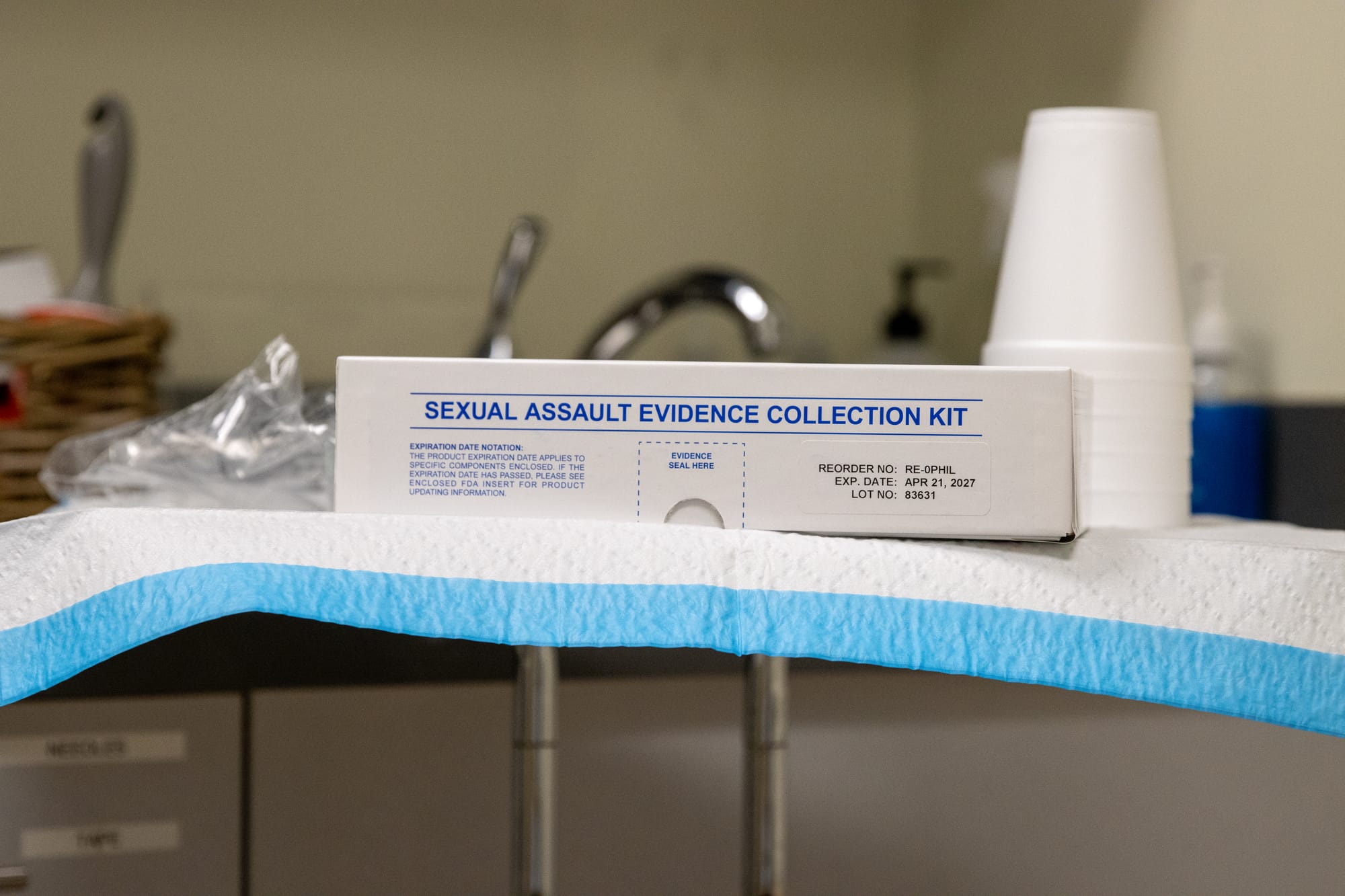
‘No SANE in Sight’
Outside of pursuing state and federal funding to hire SANE nurses, advocates and health systems are working to provide the existing workforce with more support and education to help prevent SANE burnout.
The mental toll of performing these exams and the shortage itself has made it difficult for health systems to retain SANE nurses, according to a recent International Association of Forensic Nurses survey.
There are 88 certified SANEs across Pennsylvania, and only 23 serve rural counties per a Penn State review of IAFN’s directory.
Pennsylvania hospitals make their own decisions about how to staff SANE nurses. Most use a mix of an on-call nursing service and hospital staff who are accustomed to doing exams even if they’re not SANE certified, Wickwire said. The SANE certification entails a 40 hour training.
IAFN has created a two-hour “No SANE in Sight” training for medical professionals who aren’t SANE nurses but may need to conduct the exams. Hospitals can also participate in Penn State’s SAFE-T System, which offers health systems a remote SANE nurse who can oversee an exam in live time.
Wickwire said in situations where a SANE nurse isn’t physically present, a virtual expert can work – but only if the provider in the hospital has some training as well.
“You can’t take an experienced SANE on the other end of the camera, and then you’ve got an ER nurse who knows nothing about trauma-informed care,” she said. “If that person that’s live with them doesn’t get it, the experience is going to be less ideal.”
Allison Denman is the clinical director of the Philadelphia Sexual Assault Response Center, where most Philly survivors 16 and over go for rape kit exams.
Denman wants to see more support for SANE nurses in hospitals, but isn’t convinced telehealth is the best answer.
“Why are we putting more victims into a position where there’s no hands-on expert care?” she said. “You’re overly relying on a system where high-risk and very vulnerable marginalized patients have to be on live camera… it should just be training the providers to do this themselves.”
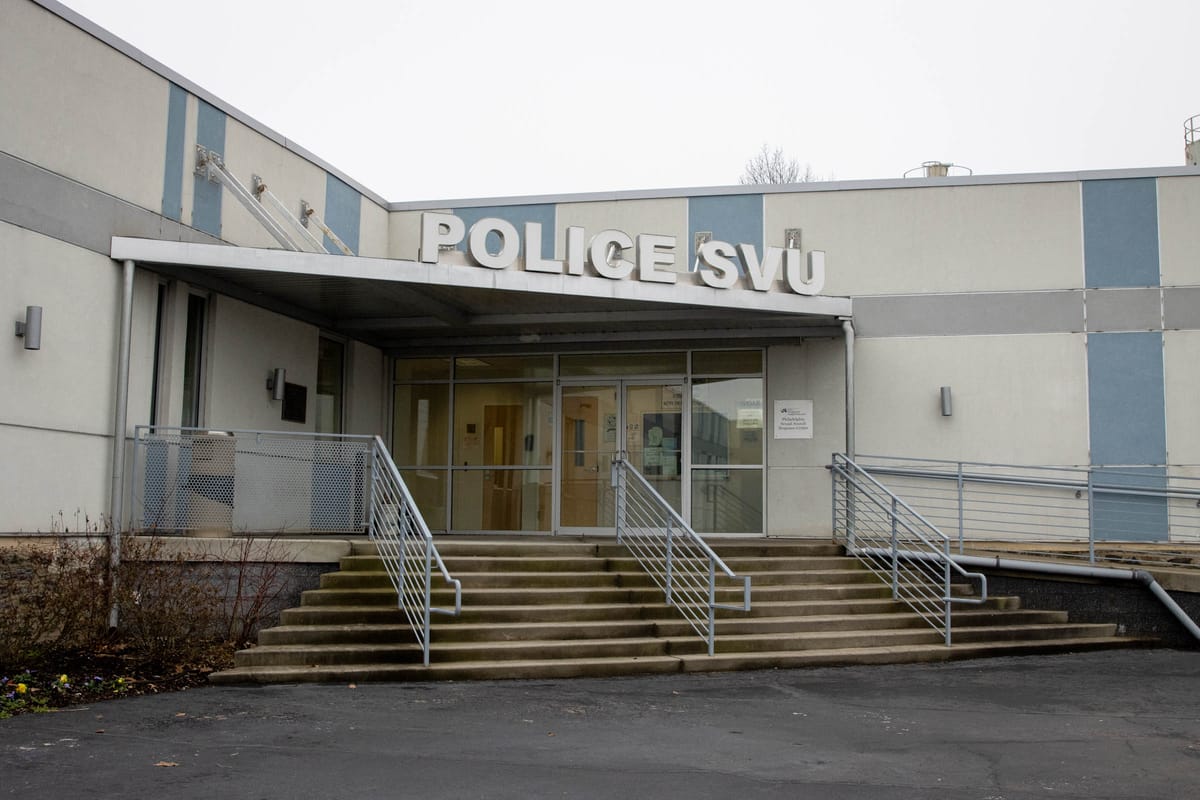
Department of Health regulations require hospitals to provide rape kit exams in the emergency department.
“However, we know that not every Pennsylvania hospital is staffed by a SANE or a healthcare provider who is trained in trauma-informed care and evidence collection,” wrote Pennsylvania Coalition to Advance Respect policy director Gabriella Romeo in a November 2023 support letter for the PA Senate bill.
“The Department of Health does not require medical providers to be SANE trained in order to treat victims of sexual violence in the context of the forensic rape exam,” Romeo wrote. “It is widely considered a best practice to have SANE-trained healthcare providers conducting the medical forensic exam.”
The SAFE-T program facilitates SANE nurse training, said Miyamoto, who helped start the program at Penn State.
Their main priority is making sure hospitals can quickly and appropriately respond to rape survivors whether they have a SANE nurse present or not, she said.
For hospitals that participate in the SAFE-T program, that means monthly check-ins, team meetings, case reviews, and continuing education.
“We wrap a ton of support around these teams,” Miyamoto said. “It's not an expert on one side and eyes and hands on the other, where we just tell you what to do. We are growing them as experts, and making them proud of the role they have in their local community.”
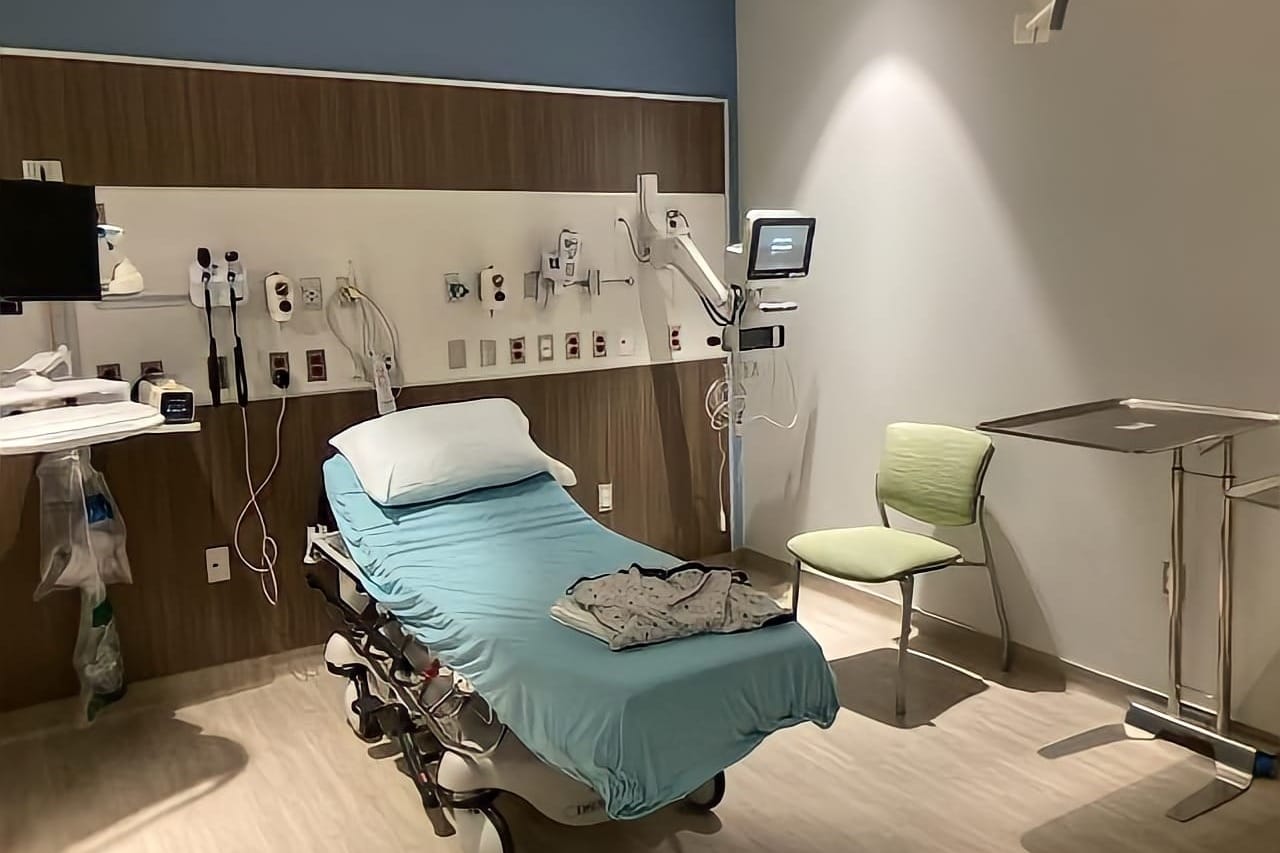
‘They have some dignity’
The first point of contact for a rape victim who arrives at the Penn State Health Hampden Medical Center emergency department in Enola is the registration area.
If they disclose a sexual assault and request a rape kit exam there, a triage nurse then brings them back to a special room where SANE exams take place, according to Penn State Health Hampden nursing director Nicole Gautsch.
The room, built in 2021, has a large couch and a private bathroom with a shower, Gautsch said. It’s where patients sit for the one hour it usually takes for an on-call nurse to arrive at the hospital.
“Everyone wants to see our room,” Gautsch said. “Our hospital is brand new, it’s a gorgeous space.”
Hospital staff can also call an advocate from the local rape crisis center to come onsite and wait with the patient.
Gautsch said there’s extra clothing available, including brand new underwear.
“That way they feel they have some dignity when they leave,” she said.
The Pennsylvania State University Health System’s five hospitals all have special SANE rooms, funded by Penn State Health.
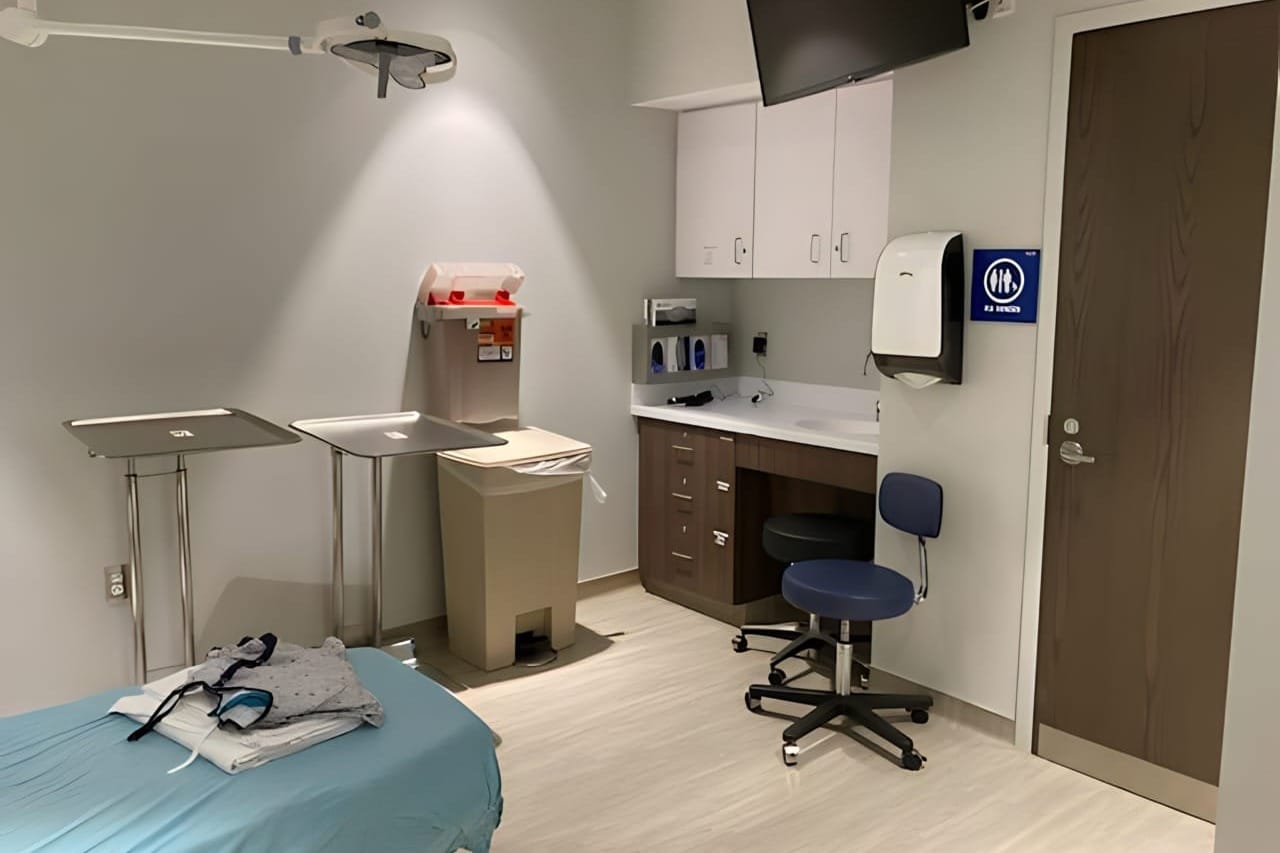
In Philadelphia, rape victims are mostly treated outside of the hospital setting, at the Philadelphia Sexual Assault Response Center. It’s tucked in the back of the Philadelphia Police Department Special Victims Unit building, separate from any hospital. Most victims who present at a hospital and don’t require admission for serious injury are transferred to the center rather than seen on site, according to Philadelphia hospital protocols.
Wickwire, of IAFN, said there are no other cities in PA that use that model. She thinks it’s problematic to send sexual assault survivors seeking exams to another location.
“You shouldn’t have a blanket situation where everybody who comes to the hospital has a broken arm and we don’t have an orthopedic surgeon so they get transferred,” she said.
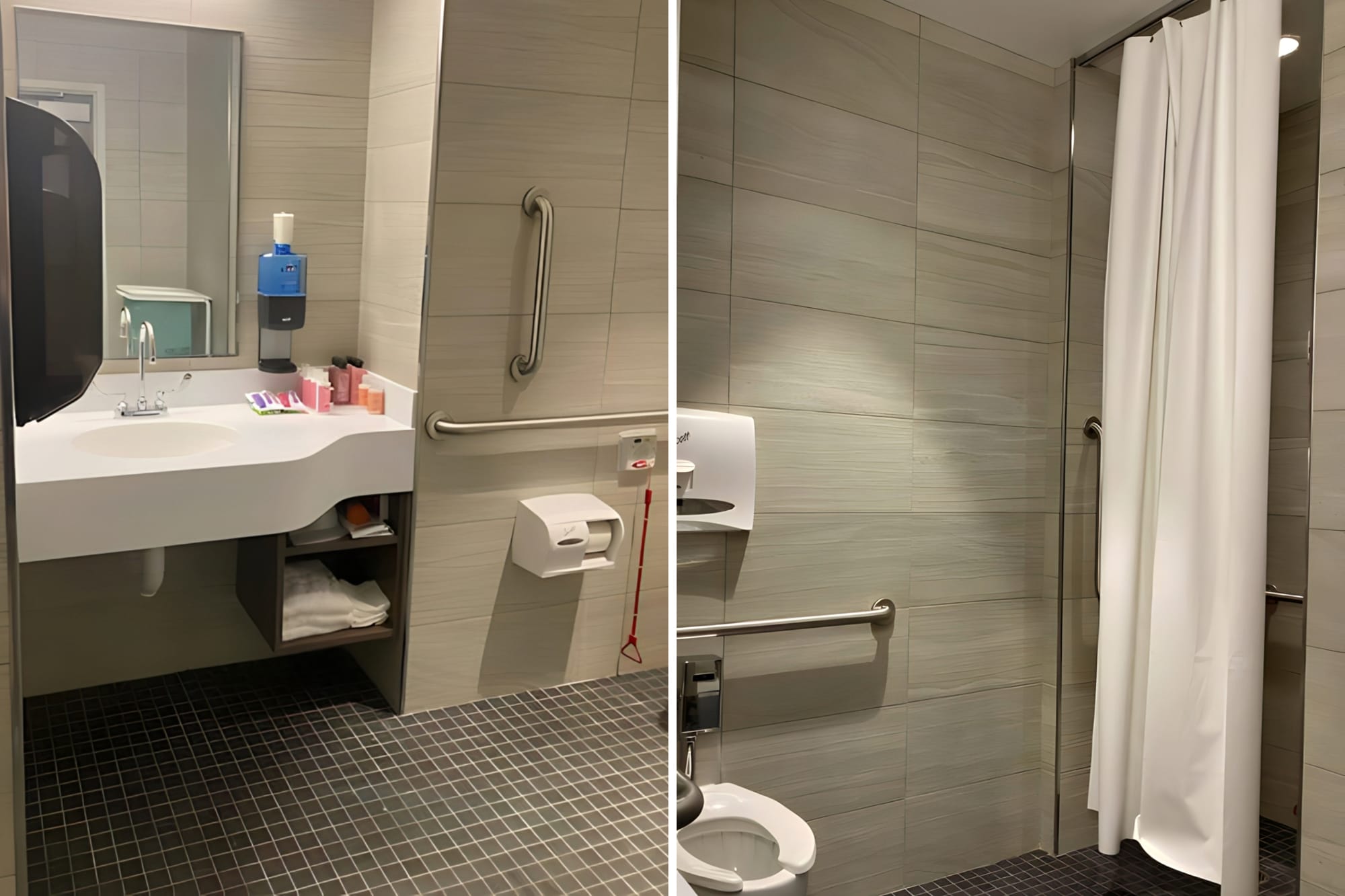
Conducting SANE exams in the emergency department allows victims to receive other medical services onsite if they need them, Wickwire said. It’s also a place where people intuitively go for help.
Wickwire notes that urban hospitals, which generally have longer wait times than rural ones, need solutions that make rape victims a priority so they’re“not sitting in the waiting room for hours and hours after they’ve had something traumatic happen to them.”
She said a room for rape survivors inside of the emergency department solves that problem.
“There are places that have maybe a special room or a couple of rooms … it could be part of the ER but maybe it’s at the end of the hall and separate,” she said. “Patients should report wherever, but they should get triaged at a higher acuity, prompting them to move through the system a little differently.”
Find help after sexual violence
PSARC
https://drexel.edu/cnhp/practices/psarc/
Non-emergency phone: 215-800-1589
Emergency (for on-call sexual assault nurse examiner/SANE): 215-425-1625
Contact: Email Allison Denman directly at ald376@drexel.edu
Services offered: forensic medical evaluation, injury documentation, forensic photography, pregnancy prevention, sexually transmitted infection prevention, HIV prevention, follow-up care, court testimony, victim advocacy linkage
WOAR
https://www.woar.org/
Hotline: 215-985-3333
Services offered: counseling, human trafficking support, prevention workshops, phone or on-site advocacy during exams
New Day Drop-in Center
https://easternusa.salvationarmy.org/eastern-pennsylvania/greater-philadelphia/new-day-drop-in-center-1/
Services offered: case management, housing referrals, showers, daily meals, art and yoga groups
PCAR
https://pcar.org/
Services offered: rape crisis center directory, legal information, advocacy opportunities
Project SAFE
https://projectsafe.dreamhosters.com/
Services offered: supplies, advocacy, weekly group for sex workers

This story was published with the assistance of the Journalism and Women Symposium (JAWS) Health Journalism Fellowship, supported by The Commonwealth Fund.
Have any questions, comments, or concerns about this story? Send an email to editors@kensingtonvoice.com.



